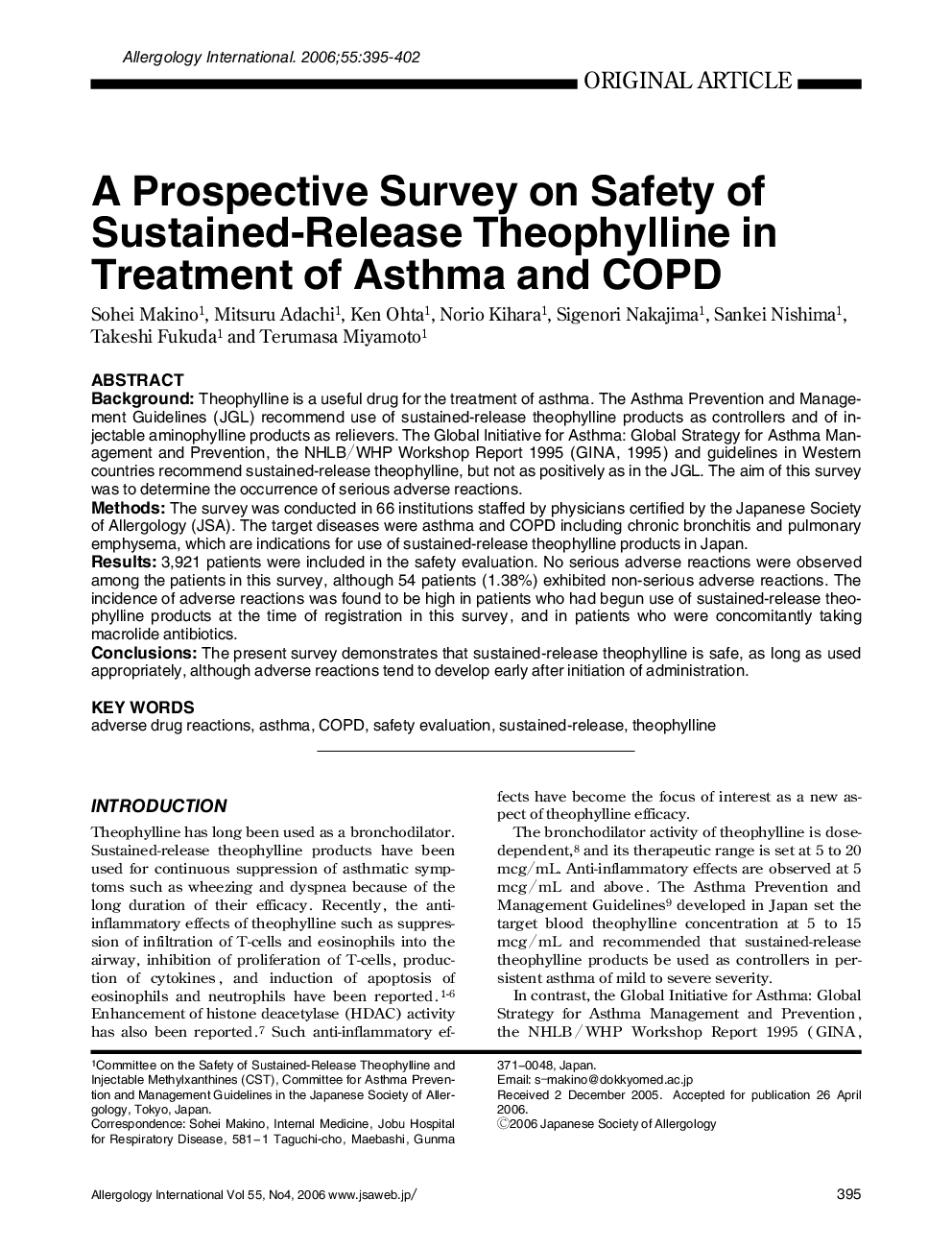| Article ID | Journal | Published Year | Pages | File Type |
|---|---|---|---|---|
| 3341148 | Allergology International | 2006 | 8 Pages |
ABSTRACTBackgroundTheophylline is a useful drug for the treatment of asthma. The Asthma Prevention and Management Guidelines (JGL) recommend use of sustained-release theophylline products as controllers and of injectable aminophylline products as relievers. The Global Initiative for Asthma: Global Strategy for Asthma Management and Prevention, the NHLB/WHP Workshop Report 1995 (GINA, 1995) and guidelines in Western countries recommend sustained-release theophylline, but not as positively as in the JGL. The aim of this survey was to determine the occurrence of serious adverse reactions.MethodsThe survey was conducted in 66 institutions staffed by physicians certified by the Japanese Society of Allergology (JSA). The target diseases were asthma and COPD including chronic bronchitis and pulmonary emphysema, which are indications for use of sustained-release theophylline products in Japan.Results3,921 patients were included in the safety evaluation. No serious adverse reactions were observed among the patients in this survey, although 54 patients (1.38%) exhibited non-serious adverse reactions. The incidence of adverse reactions was found to be high in patients who had begun use of sustained-release theophylline products at the time of registration in this survey, and in patients who were concomitantly taking macrolide antibiotics.ConclusionsThe present survey demonstrates that sustained-release theophylline is safe, as long as used appropriately, although adverse reactions tend to develop early after initiation of administration.
